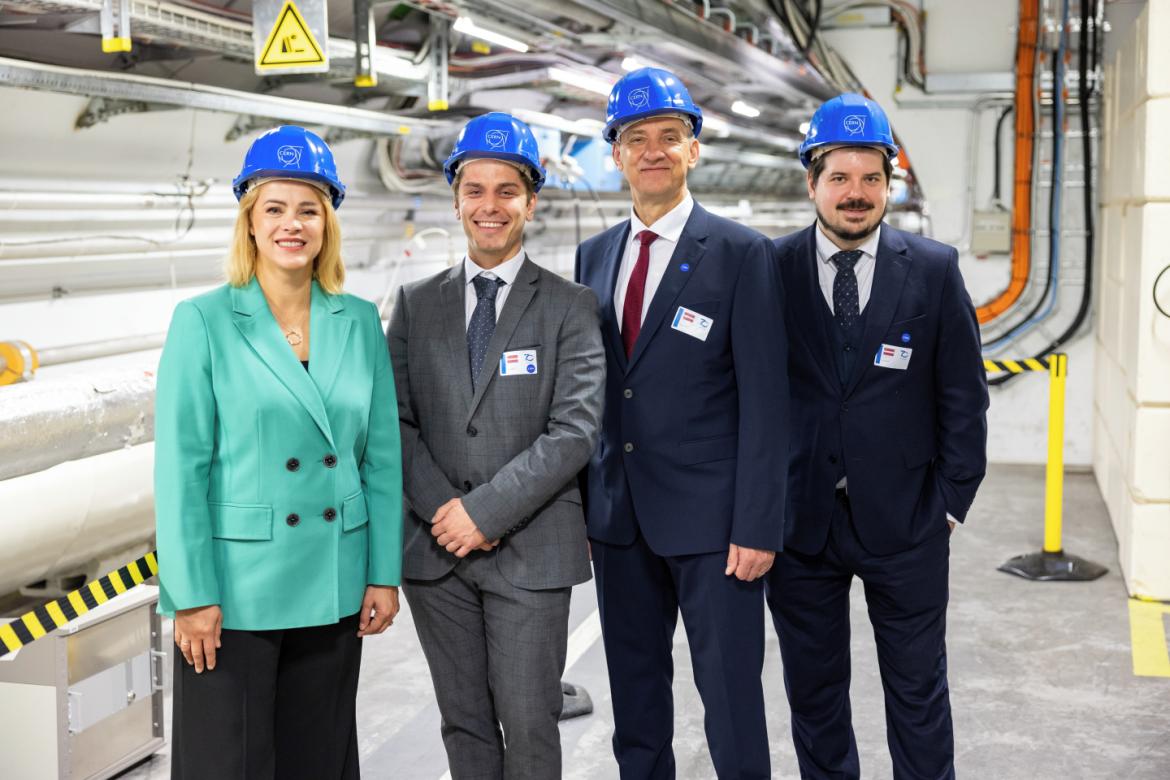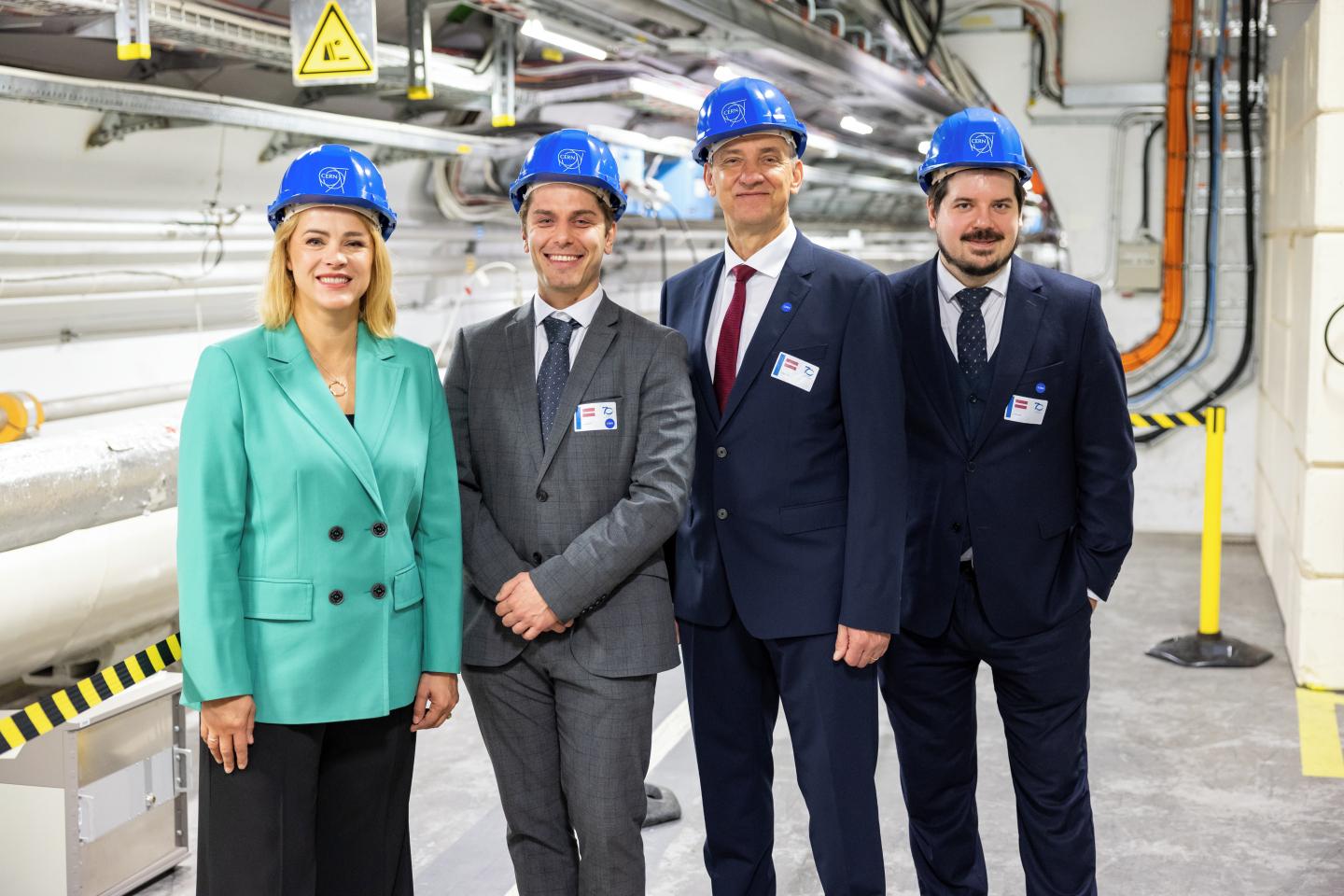This year marks the 70th anniversary of the European Organization for Nuclear Research (CERN). As part of this significant event, the Latvian delegation, including high-ranking officials, scientific experts, and representatives from the Ministry of Education and Science, went to Switzerland to participate in discussions on future cooperation with CERN.
Jānis Paiders, Deputy State Secretary of the Ministry of Education and Science Human Capital, Science, and Innovation Development, emphasizes: “CERN’s 70th anniversary symbolizes the recognition of global scientific achievements. Latvia’s participation is crucial for the future development of our science and economy. Latvian scientists are involved in world-class experiments that make real contributions to high-energy physics and medical technologies. Now is the right time for Latvia to become a full member of CERN, so that we can fully utilize this collaboration, as well as provide sustainable support for our researchers and industry.”
Since 2021, Latvia has been an Associate Member of CERN and is actively progressing towards full membership. Currently, 18 Latvian scientists are working at CERN, participating in leading global experiments, and fostering technological advancements in medicine, energy, and other fields. As an Associate Member, Latvia actively contributes in both scientific experiments and strategic discussions on the development of particle physics and accelerator technologies.
Latvia's participation in CERN is a significant step in strengthening the country's international scientific competitiveness and excellence, thus reflecting our country’s efforts to be an active and important player in the global scientific arena. This collaboration promotes not only the introduction of new technologies in Latvia, but also the engagement of youth in STEM fields.
The European Organization for Nuclear Research is the world’s largest and leading institution for fundamental physics research. CERN was founded on September 29, 1954, and focuses on researching the elementary particles that form the foundation of the universe.

From left to right: Evika Siliņa, Prime Minister of the Republic of Latvia; Kārlis Dreimanis, Head of the Particle Physics and Accelerator Technology Institute at Riga Technical University, representative on the CERN Science Policy Committee; Ivars Pundurs, Ambassador Extraordinary and Plenipotentiary of the Republic of Latvia to the UN and WTO in Geneva; and Jānis Paiders, Delegate to the CERN Council, Deputy State Secretary of the Ministry of Education and Science. Photo: CERN.
